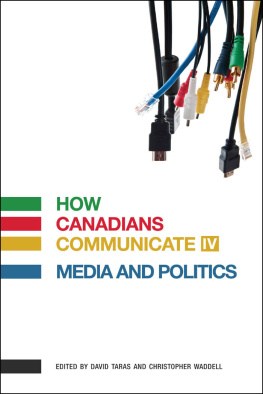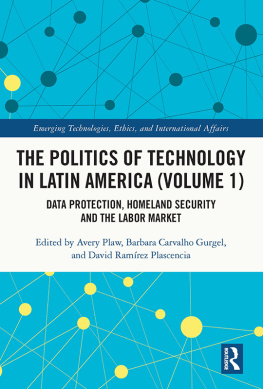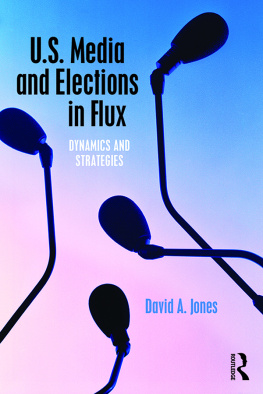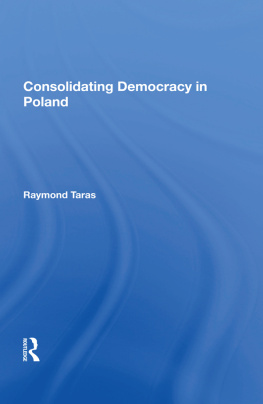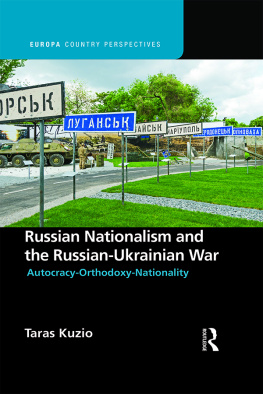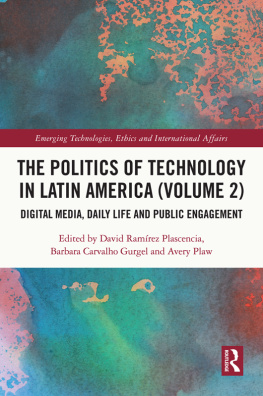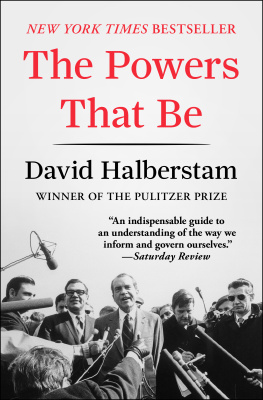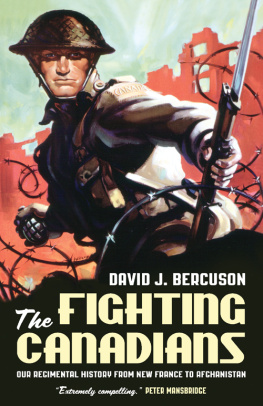How Canadians Communicate IV
How Canadians Communicate IV Media and Politics
Edited by David Taras and Christopher Waddell
Copyright 2012 David Taras and Christopher Waddell
Published by AU Press, Athabasca University
1200, 10011 109 Street, Edmonton, AB T5J 3S8
ISBN 978-1-926836-81-2 (print) 978-1-926836-82-9 (PDF) 978-1-926836-83-6 (epub)
Interior design by Sergiy Kozakov
Printed and bound in Canada by Marquis Book Printers
Library and Archives Canada Cataloguing in Publication
Media and politics / edited by David Taras and Christopher Waddell.
(How Canadians communicate ; 4)
Includes bibliographical references and index.
Issued also in electronic formats.
ISBN 978-1-926836-81-2
1. Mass media--Political aspects--Canada. 2. Social media--Political aspects--Canada. 3. Communication in politics--Canada. 4. Canada--Politics and government. I. Taras, David, 1950- II. Waddell, Christopher Robb III. Series: How Canadians communicate ; 4
P95.82.C3M45 2012 302.230971 C2012-901951-8
We acknowledge the financial support of the Government of Canada through the Canada Book Fund (CFB) for our publishing activities.
Assistance provided by the Government of Alberta, Alberta Multimedia Development Fund.
Please contact AU Press, Athabasca University at aupress@athabascau.ca for permissions and copyright information.
Illustrations
TABLES
FIGURES
Acknowledgements
This book is the result of a collaborative effort between Athabasca University and the Alberta Global Forum, now based at Mount Royal University. We are particularly grateful to Frits Pannekoek, president of Athabasca University. Without his insights, guidance, and commitment, this book would not have been possible. The book and the conference that gave life to it received generous support from a grant awarded by the Social Sciences and Humanities Research Council of Canada. We are deeply appreciative. We are also grateful to Gina Grosenick, who did a magnificent job of helping to organize the conference, and to Peter Zuurbier, whose assistance in collecting the individual essays and preparing the final manuscript was indispensable. Walter Hildebrandt, the director of Athabasca University Press, was extremely supportive and as always brought impressive ideas and good judgment. Those who worked on the volume for AU Press, Pamela MacFarland Holway, Joyce Hildebrand, Megan Hall, and Sergiy Kozakov, were all first rate. Everett Wilson helped with the original poster design for the conference and provided ideas for the book cover.
Christopher Waddell would like to thank the School of Journalism and Communication at Carleton University for giving him a wonderful vantage point over the past decade from which to watch the evolution of Canadian media, politics, and public policy. He is also grateful to his wife, Anne Waddell, and their children, Matthew and Kerry, for giving him the time to do that and to his mother, Lyn Cook Waddell, whose life as an author has had a tremendous influence on his own work. Chris adds a special thanks to Frits Pannekoek and Gina Grosenick for everything that they have done to make the conference and this volume possible.
David Taras would like to thank Chris Waddell and Frits Pannekoek for being such insightful and inspiring colleagues, Dean Marc Chikinda and Provost Robin Fisher of Mount Royal University for their faith and vision, and Greg Forrest and Jeanette Nicholls of the Alberta Global Forum for their leadership. Gina Grosenick was magnificent, as always. Claire Cummings provided excellent assistance for the AGF on a whole series of fronts, which included helping to organize the conference. David would also like to thank his wife, Joan, for her support and understanding.
The Past and Future of Political Communication in Canada An Introduction
David Taras
In June 1980, in the wake of the Qubec referendum on sovereignty and the 1979 and 1980 federal elections, the Readers Digest Foundation and what was then Erindale College of the University of Toronto co-sponsored a conference on politics and the media. The Erindale conference brought together prominent party strategists and organizers, journalists, and scholars. Participants spoke about the power of television images, the presidentialization of Canadian politics, the concentration of media ownership, the failure of leaders to address policies in a serious way during elections, the sheer nastiness and negativity of political attacks, the power of the media to set the agenda and frame issues during elections, and the need for politicians to fit into those very media frames if they wished to be covered at all. None of these concerns have vanished with time. If anything, they have hardened into place, making them even more pervasive and intractable.
Yet even as so much has remained the same, so much has changed. When the conference How Canadians Communicate Politically: The Next Generation was convened in Calgary and Banff in late October 2009, the media and political terrains had been dramatically transformed. The revolution in web-based technology that had begun in the mid-1990s had hit the country with devastating force. As online media depleted the newspaper industry, TV networks, and local radio stations of a sizable portion of their audiences and advertising, the old lions of the traditional media lost some of their bite. The stark reality today is that every medium is merging with every other medium, every medium is becoming every other medium, and all media are merging on the Internet. Most critically, a new generation of digital natives, those who have grown up with web-based media, is no longer subject to a top-down, command-and-control media system in which messages flow in only one direction. Audiences now have the capacity to create their own islands of information from the endless sea of media choices that surround them, as well as to produce and circulate their own videos, photos, opinions, and products, and to attract their own advertising.
And the country has also changed. The Charter of Rights and Freedoms, the absorption of more immigrants from more countries than any other society in history, the growth of global cities, and connectivity have all produced a profoundly different society. Furthermore, years of constitutional battles and another much more desperately fought referendum in Qubec in 1995 have culminated in both frustration and exhaustion. Living on the edge of a precipice could not be sustained indefinitely, even in Qubec. The country has also grown proud of its accomplishments. Canadas banking system withstood the most punishing effects of the financial meltdown that ravaged the world financial system in 2008 and 2009; multicultural experiments that appear to be failing in other societies, such as France, the United Kingdom, and Germany, are succeeding in Canada; and arts and culture are burgeoning.
The How Canadians Communicate Politically conference, organized by Athabasca University and the Alberta Global Forum (then based at the University of Calgary and now at Mount Royal University), brought together distinguished scholars from across Canada with the intention of examining what the next generation of political communication would look like. We asked contributors to view politics and communication through a much different and more expansive lens than was the case with the 1980 Erindale conference. While much of this volume deals with media and politics in the conventional senseexamining such topics as the interplay among journalists and politicians, the future of news, and the effectiveness of negative campaigning in both online and TV advertisingwe also look at politics through the frames of popular culture and everyday life: biographies, off-road politics in rural Alberta, Qubec film, hotline radio, music, and Aboriginal art. The noted Swedish scholar Peter Dahlgren has observed that changes in popular culture both reflect and condition political change.it permeates and affects public policy. While some of these essays deal with aspects of popular culture, our search was widerwe wanted to see how politics takes shape and change occurs in places that are beyond the prescribed battlegrounds of politicians and political parties.



